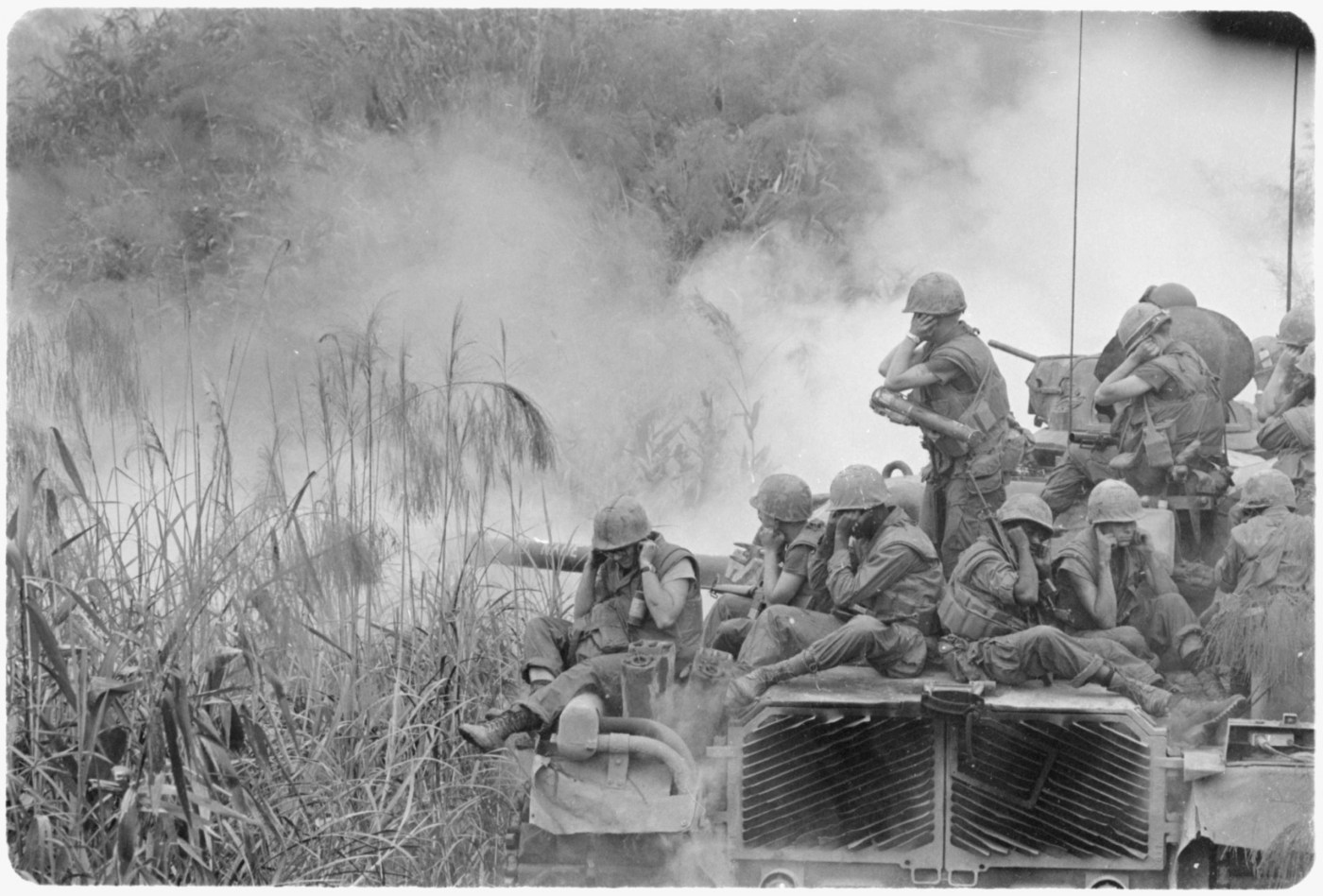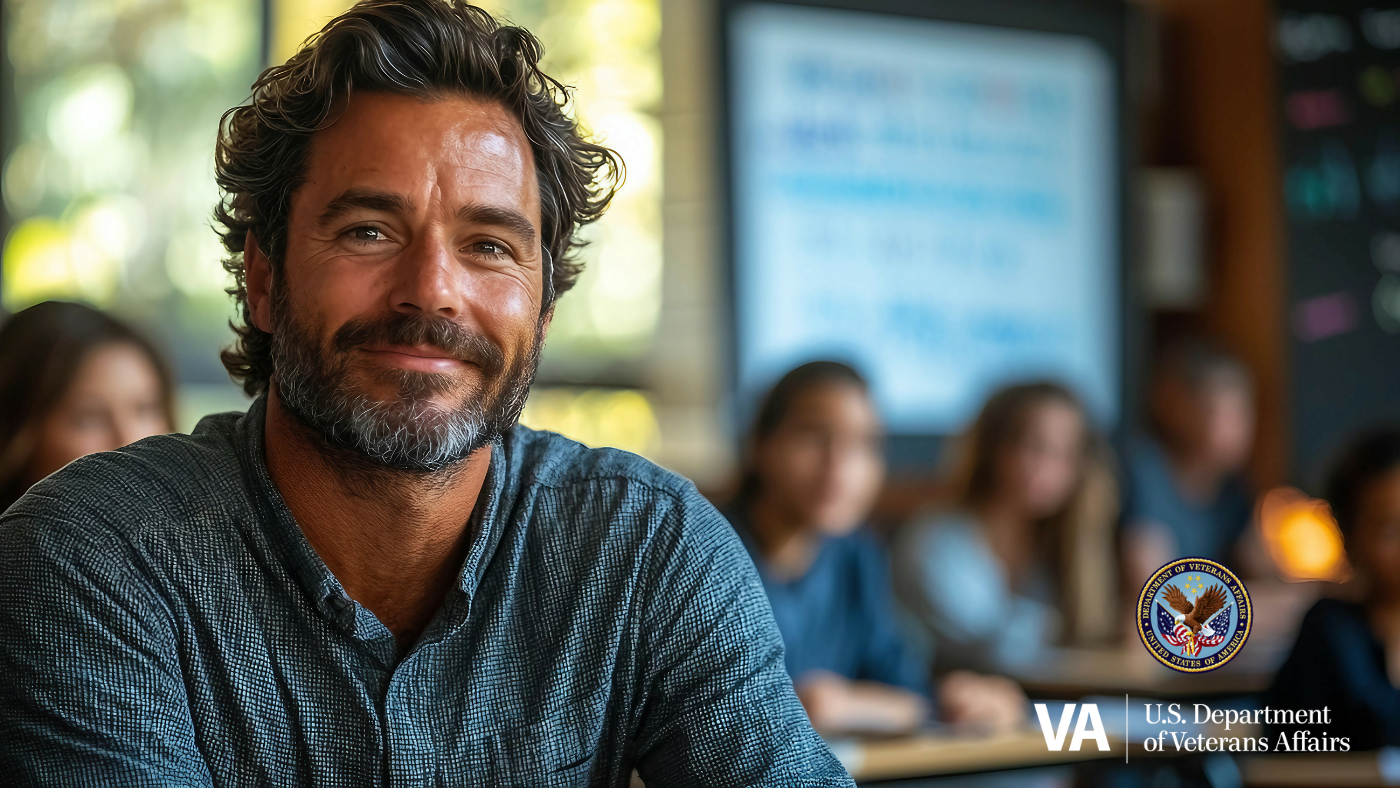Veterans who served in Vietnam, Cambodia, or Laos during the Vietnam War have a higher prevalence of mental health issues, particularly PTSD, compared with both other Vietnam-era Veterans and non-Veterans, according to an analysis of data from the Vietnam Era Health Retrospective Observational Study (VE-HEROeS).
The report appeared online in “The Journal of Traumatic Stress” in March 2022.
“Although almost 50 years have passed since the official war’s end in 1975, Vietnam theater Veterans are still reporting poor mental health,” said Dr. Victoria Davey, the study’s senior author. Davey is the principal investigator of VE-HEROeS and an associate chief research and development officer for VA.
Survey responses from nearly 19,000 Veterans
VE-HEROeS is the first nationwide survey of both the physical and mental health of Vietnam War Veterans in more than 30 years. It sought survey data from more than 45,000 Vietnam-era Veterans, as well as 11,000 matched controls. Data collection was completed in 2016 and 2017; nearly 19,000 Veterans responded. Multiple analyses are underway based on the data.
VE-HEROes collected survey data from three groups:
- Vietnam-theater Veterans: those deployed to Vietnam, Cambodia, and/or Laos between February 28, 1961, and May 7, 1975, during the Vietnam War.
- Non-theater Veterans: service members who served elsewhere during that time.
- Sex- and age-matched U.S. non-Veterans.
Compared with non-theater Veterans, Vietnam-theater Veterans had four times the risk of PTSD, nearly double the risk for depression, and more than two times the risk of psychological distress. Compared with non-Veterans, they had more than nine times the risk of PTSD, more than double the risk for depression, and nearly six times the risk of psychological distress.
Greater distress among minorities
Overall in the United States, about 2% to 3% of adults ages 65 and older suffer from psychological distress (NHIS 1997-2004). In VE-HEROeS, the percentages were 1.8% among non-Veterans, 4.5% in non-theater Veterans, and 10.4% in Vietnam-theater Veterans.
Among Vietnam-theater Veterans, Blacks and Hispanics reported greater PTSD, depression and psychological distress than did whites. This was particularly true for Hispanic theater Veterans, who had significantly higher risk for PTSD and depression, compared with white Vietnam theater Veterans. Black and Hispanic non-theater Veterans also had elevated risks for PTSD compared with white non-theater Veterans.
Vietnam-theater Veterans were more likely than non-theater Veterans to have served in the Army (54.4% vs 43.4%); to have served between 1965 and 1970, during the height of the Vietnam War (73.1% vs 59.9%); and to have been drafted (25.5% vs 19.9%).
Burden might be underestimated
Physical health and traumatic events were strongly linked with mental health status in this study. Other studies have shown that Veterans exposed to high war-zone stress have poorer physical health, and that traumatic events are associated with poorer mental health.
VE-HEROeS survey data show that an estimated 62.9% of Vietnam-theater Veterans either experienced combat or were in a non-combat position in which they felt afraid for their lives. This was reported much less often by non-theater Veterans and non-Veterans (7.1% and 1.3%, respectively).
“These results may underestimate the mental health burden of Vietnam-theater Veterans, because those at greatest risk for poor mental health may have already died, or may be homeless or incarcerated,” noted Davey.
“The Vietnam War continues to have negative effects on Veterans’ mental health, particularly for those who served in the Vietnam theater,” she added. “This is the case even 45 years after the war ended. The availability of mental health services will continue to benefit these Veterans.”
More Information
Click here to read more about VA research.
Topics in this story
More Stories
How much do you know about VA care, benefits and services? Don’t miss out on what you've earned—check out the "2025 VA Federal Benefits Guide for Veterans, Dependents, Survivors, and Caregivers" handbook to learn more.
VA has updated its process for awarding G.I. Bill benefits. This means that many Veterans who served multiple periods of military service (for example, Veterans who reenlisted) may be eligible for additional benefits for themselves or their beneficiaries.
Summer Sports Clinic is a rehabilitative and educational sporting event for eligible Veterans with a range of disabilities.







Upon return from Vietnam deployment Army Combat Engineering during Tet Offensive timeframe my mental stability was assessed (after) discharge by a Psychologist. There wasn’t even a word for PTSD until 1980 so the Medical doctors just distributed high-strength prescription drugs to deaden a Vets emotional reactions. During my combat service I observed young soldiers who’d been drafted or called up in National Guard deployments to Vietnam. My emotional reaction to soldiers behaviors that I’d personally consider to be “inhuman and depraved” was very traumatic. My deepest, most horrific memories are related to those experiences was seeing how quickly, within weeks or months, teenagers became like animals without a conscience. More like crazy and unhinged people going out of control. Army and Marine soldiers scalped Vietnamese and cut off their ears, wearing grizzly necklaces of hair and ears to display their mental conditions of hatred. This is how PTSD impacted people in Military Uniform. I’ve seen Vietnam Vets in homeless camps and begging on the streets for food over the years since then. Many using street-drugs and drink alcohol to the extreme to deal with emotional trauma. This is real and true. Department of Defense and VA must take on the burden that cascades over into Veteran’s family, children and friends.
I have been told in official denials of claims made that the United States Air Force (USAF) non-pilot support personnel did not participate in combat. Well, I may not have been armed and able to return fire, but I was on the receiving end of many, many, many assaults from sappers, mortars, rockets and end stage explosions involving aircraft, and ammunition and hazardous material storage dumps. I have performed under fire as an Augmentee Fire Fighter and crapped my pants multiple times. To illustrate, please research January 5, 1970 attack on Bien Hoa AB, RVN and specifically the Detachment 5, 8th Aerial Port Squadron newly opened Passenger and Cargo Terminals, Unit Barracks area and the surrounding Base. The Commander of this (my) unit served under extreme pressure which resulted in his death by Heart Failure only a few days short of his DEROS (Look it up) in August 1970. His “WALL” data follows:
LESTER EUGENE OONK
LTC – O5 – Air Force – Regular
His tour began on Aug 31, 1969
Casualty was on Aug 13, 1970
In BIEN HOA, SOUTH VIETNAM
NON-HOSTILE, GROUND CASUALTY
HEART ATTACK
Body was recovered
Panel 08W – Line 108
He was my Commander and highly respected by all his unit personnel. So that is why I posted this to let others know that the USAF non-flying ground support personnel were in combat and suffered equally with their Cohorts in the Marine, Navy, Coast Guard and other contributing Nations armed forces In-Country.
We were often referred to as Bullet Sponges …. And in training some of our fellow MARINES didn’t know how to read and comprehend …. but don’t put a rifle in their hand’’s cuz they were deadly as hell
What you’re looking for has already been invented! It is called a VET CENTER, and they are all across the country. They are specifically geared to vets looking for the support that you are seeking. They are NOT the VA which provides medical care for vets, They are funded and run by the federal government and are exactly along the lines that you’re looking for…..social, mental, and all sorts of other advice, etc. I would think that if you can’t find one on your own locally, that ANY military or veteran’s groups, even a military recruiter, etc. should be able to help you to find the one closest to you. If you can figure out how to contact me personally, I could help you to do that.
[Editor: You can learn more about VA’s Vet Centers here: https://www.vetcenter.va.gov/ ]
As far as the Army is concerned, this is due in large part because Army officers and senior non-coms demonstrated particular disdain for lower-ranking troops and viewed their command-level jobs more as prison wardens than unit commanders. White officers and white senior non-coms in Vietnam were extraordinarily racist and uncaring about their non-white troops. An essential read is the 1970 Army War College study commissioned by Army Chief of Staff William C. Westmoreland on the failure of Army officers and non-coms in Vietnam: https://apps.dtic.mil/dtic/tr/fulltext/u2/a063748.pdf. An additional problem was the fact that many of the Army personnel who served in Vietnam were intellectually deficient to handle war. Many of those men would, under pre-Vietnam standards, never have been drafted or allowed to enlist. However, colleges and universities across the country who competed with the US military for male bodies exerted heavy prejudicial pressure on the Army and politicians to compel the Army to accept males that colleges would never accept. The Army’s “100,000 Program” to educate newly inducted, under-educated soldiers proved to be not only dysfunctional but corrupt. — americanwarlibrary.com
After reading your article and considering my own personal experiences, my comment /question is about the VA providing or arranging a method whereby social interactions for us Vietnam Veterans could be implemented to relieve some of the effects of PTSD.
Perhaps a community type place with activities to create a distraction from the ever increasing stresses of everyday life for the average Vet.
A place or set of events where we can interact and be around those who share similar experiences.
This idea of support grouping for mental health has been successful in anonymous programs for addiction relief.
There could be indoor and outdoor get togethers and a regular place to meet and discuss our experiences and issues.
There would also be an opportunity to create a vet volunteer organization to give us a sense of usefulness.
My mental health has been declining rapidly recently. I do have regular meetings with professionals for assistance. But bottom line is “it’s all on me” and I’m seriously failing in many ways.
Please help. Thanks.